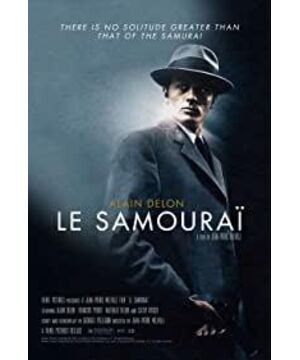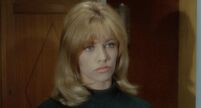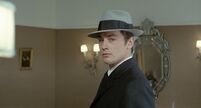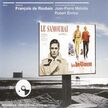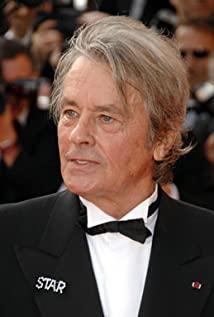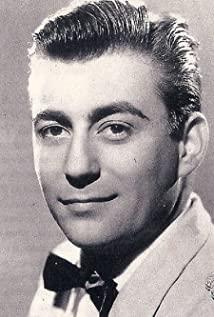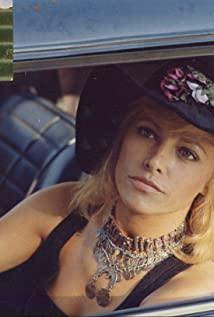Warning: there are spoilers.
When I was reading a magazine in the 2000s, I turned to a page of a film review with a photo of a lone killer. Alain Delon was wearing a windbreaker that was not bad at the time, and a top hat with a lowered brim. Walking down the empty streets of Paris, the melancholy energy in both eyes seemed to pour out of the photo, filling the entire page. Loneliness and depression all over the sky, this is my initial impression of this film.
One morning I was suddenly captured by a feeling that seemed to be a silent mind telling me that this was the time for me to watch The Lone Killer. So I opened the video, found the lone killer, sat on a chair and watched it. Before that moment, I had been impatient to watch long videos for two weeks. Both hands were always uncontrollable to swipe Weibo and play mobile games. fill up. Watching The Lone Killer today, I felt like I had signed an oath in advance with an invisible force. For nearly two hours, I focused on the film as if I was being supervised.
Compared with the current commercial blockbusters, this is a boring movie with very little dialogue, because the protagonist is always acting alone. For all the factors related to the story that appear in the film, the director basically does not use dialogue to explain, but provides the characters' actions, demeanor, interaction and corresponding scenarios for the audience to experience. I like this silent way of filming, which allows people to sort out the context of the film a little bit by themselves, but also achieve a silent tacit understanding with the film. A film that uses too much dialogue to explain the story is like a controlling aunt from the neighborhood committee, who always meddles and interferes with the audience's thinking, killing the desire to communicate between people and the film.
Alain Delon's character in the film is named Jeff Castro, and the film is basically a one-man show for Jeff, and the only person he's connected to is the blonde who lives in the bachelor pad, but their relationship There are not too many emotional scenes, Jeff and the blonde only meet twice, once before the assassination, and once to say goodbye. The first time we met, Jeff only focused on one sentence, "I'll be here tonight at seven fifteen and leave at two." When the woman told another man to come, he changed the sentence to: "Then I Stayed here from seven-fifteen to one-forty-five." The conversation was straightforward. As an audience, we can only speculate from this that these two people have known each other since before, and it is not the first time that the blonde has done such a thing. As for who the blonde is, how did she meet Jeff, and what is the relationship between her and Jeff? The director didn't explain it to us until the end of the film, and the alienating atmosphere of the whole film made this kind of non-accounting a matter of course.
I greatly admire the director's attitude of not following behind the audience's ass. Although the film has very little dialogue, every detail contains rich information, and this information makes up for the lack of language, and is even more appropriate than language. reflect the circumstances of the story. For example, Blonde and another lover, Weiner, were called to the police station because of Jeff. What was Weiner's state of mind when he learned that the girl had a relationship with Jeff, and how he would deal with the relationship with the girl after that? Let him express in words, not even the basic expressions and gestures of betrayal, but let him hurriedly ask the police if he can leave when he comes out of the interrogation room when he meets the girl, and immediately after he gets a positive answer He turned his head and left, the whole process was neat and tidy, without even looking at the girl, we could also feel the rupture of his relationship with the girl from this process.
There are many similar plots like this. The director will cleverly use two or three scenes with rich meanings to foreshadow or answer questions for the audience, so although the film does not have much dialogue, it does not make people feel bored, but makes the audience. The attention is always drawn by the story.
Jeff went to the wolf's den single-handedly, and did not come to a hearty, hormone-fueled killing like a Hollywood commercial film. After two shots were fired, Jeff killed his opponent and ended the battle.
As soon as the gangster dies, the gangster hunt due to Jeff being suspected by the police seems to be over, and Jeff seems to have dealt with all the problems, however, amid the upbeat jazz music, we see him at the nightclub again, wearing a The white glove when he murdered, walked up to the female pianist with a blank face. When I saw this, I would think that the pianist would definitely die, but I was puzzled about Jeff's motive for killing. Although the pianist was a big gangster. The lover of the gangster, but he has no grudge against Jeff, and even helped Jeff at a critical moment, and the gangster is dead, the crisis of chasing and killing has been lifted, and the pianist will never tell the police about Jeff, Why did Jeff come to kill her? The film is almost over here. If Jeff just killed someone like this, he would feel that the story was missing something. Finally, after drawing the gun, Jeff revealed the reason for his murder. The purpose, I was hired. The new two million franc deal that the gang boss sent someone to mention to Jeff was spread out. I saw the pianist's desperate eyes and thought that Jeff really Ruthless to the end, he did not violate the killer's creed in the end. At this moment, the police hiding behind the scenes rushed out and shot Jeff to death.
The cool tone of the film from the beginning to the end suddenly became lively here. I thought the story should end here. However, when the detective picked up Jeff's pistol and found that there was no bullet in it, this natural defensive action became a A downright tragedy, maybe Jeff was just joking, or maybe he just wanted to strike a balance between creed and sympathy, figuratively hitting the guns, but none of that matters, no one can guess Jeff's purpose, we can only speculate that he has no ill will towards the pianist, as the police disperse, the pianist sits on the table, the camera zooms out, and then terminates, after a brief period of enthusiasm, the film resumes it An attitude of alienation and indifference.
View more about Le Samouraï reviews


